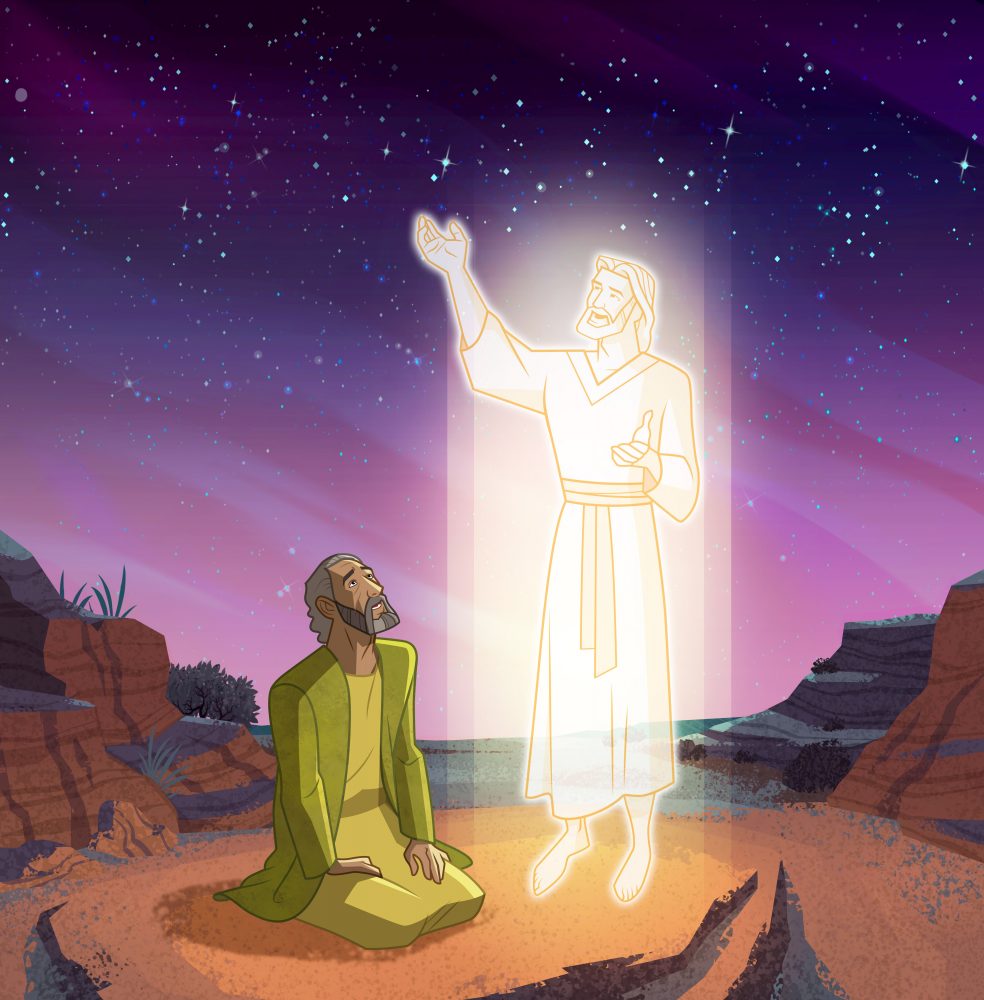Rev. José Mario O. Mandía
jmom.honlam.org
The Catechism points out that we find models of prayer in Sacred Scripture. One of them is Abraham. “Abraham is a model of prayer because he walked in the presence of God, heard and obeyed him” (CCCC 536).
IN GOD’S PRESENCE: Prayer requires walking in God’s presence, reminding oneself constantly that God is with us. He Himself draws near and walks with us (cf. Luke 24:15). Wherever we are, whatever we be doing, it is in that setting that we will hear the voice of God.
HEARING AND OBEYING: Praying requires hearing and obeying because God speaks first. He is the one who initiates the conversation. “It is he who first seeks us” (CCC 2560), even when we are wallowing in sin. “But the LORD God called to the man [Adam], and said to him, ‘Where are you?’” (Genesis 3:9).
“Now the LORD said to Abram, ‘Go from your country and your kindred and your father’s house to the land that I will show you. And I will make of you a great nation, and I will bless you, and make your name great, so that you will be a blessing. I will bless those who bless you, and him who curses you I will curse; and by you all the families of the earth shall bless themselves’” (Genesis 12:1-3). As incredible as it seems, Abram does not ask for any proof or guarantee from God. “So Abram went, as the LORD had told him; and Lot went with him. Abram was seventy-five years old” (Genesis 12:1-4). Anyone at that age would probably have begged and suggested that the Lord find a younger candidate. But Abraham “heard and obeyed” (CCCC 536). He just did what the Lord told him.
FAITH: “His prayer was a battle of faith because he continued to believe in the fidelity of God even in times of trial” (CCCC 536).

He “continued to believe” that God would send him the son that He promised. Abraham waited for twenty-five years and was already 100 years old when Isaac was born (cf. Genesis 17:17). That was not the last test of faith, though.
“After these things God tested Abraham, and said to him, ‘Abraham!’ And he said, ‘Here am I.’ He said, ‘Take your son, your only son Isaac, whom you love, and go to the land of Moriah, and offer him there as a burnt offering upon one of the mountains of which I shall tell you.’ So Abraham rose early in the morning, saddled his ass, and took two of his young men with him, and his son Isaac; and he cut the wood for the burnt offering, and arose and went to the place of which God had told him” (Genesis 22:1-3). We know how the story ends, but Abraham must have suffered so much anguish in his heart as he struggled to carry out God’s instructions and “continued to believe” that something good would come out of it.
INTERCESSION: “Besides, after having received in his own tent the visit of the Lord who confided his plan to him, Abraham dared to intercede for sinners with bold confidence” (CCCC 536).
“Abraham drew near, and said, ‘Wilt thou indeed destroy the righteous with the wicked? Suppose there are fifty righteous within the city; wilt thou then destroy the place and not spare it for the fifty righteous who are in it? …. And the LORD said, ‘If I find at Sodom fifty righteous in the city, I will spare the whole place for their sake.’
“Abraham answered, ‘Behold, I have taken upon myself to speak to the Lord, I who am but dust and ashes. Suppose five of the fifty righteous are lacking? Wilt thou destroy the whole city for lack of five?’ And he said, ‘I will not destroy it if I find forty-five there’” (Genesis 18:23-24,26-28).
Then Abraham pleaded for forty, then thirty, all the way down to ten and God promised he would spare the city for the sake of ten (Genesis 18:32). Unfortunately, He did not find ten righteous men.


 Follow
Follow


